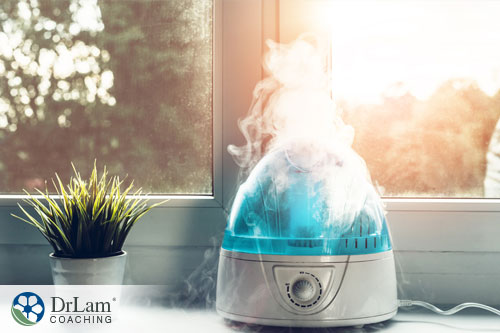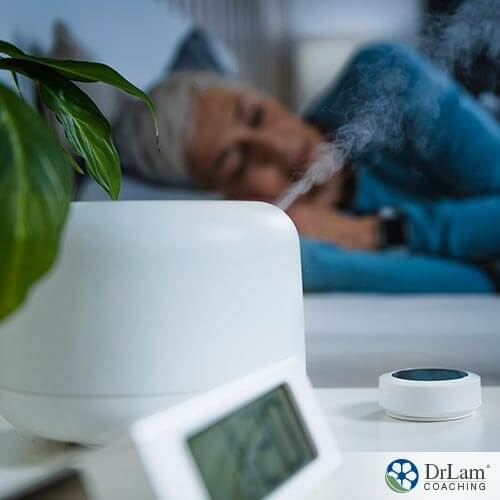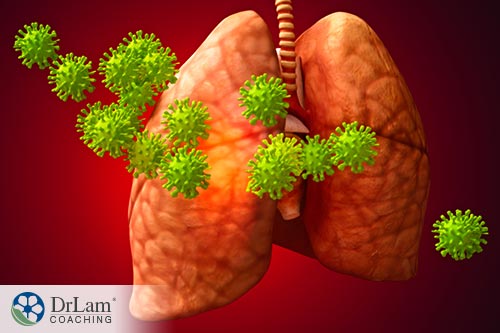 Are you having trouble breathing due to environmental pollutants? Is dry air bothering you? You want to take a deep breath and enjoy doing your favorite activities. Now, you can easily have a good quality of life by using a humidifier. People have used a humidifier in different settings for a balanced internal environment. You should know the benefits of a humidifier and how it works for your body.
Are you having trouble breathing due to environmental pollutants? Is dry air bothering you? You want to take a deep breath and enjoy doing your favorite activities. Now, you can easily have a good quality of life by using a humidifier. People have used a humidifier in different settings for a balanced internal environment. You should know the benefits of a humidifier and how it works for your body.
A humidifier is an electrical appliance that increases the moisture in the air of an indoor space. Adding moisture to air makes breathing easier by facilitating the detoxification process of the lungs. Humidifiers vary from small portable types for personal use to large fixed types for use in buildings. They provide comfort in home, hospital, and industrial settings.
Humidifiers are highly beneficial in various health conditions such as allergies, colds, and conditions that affect skin, nose, sinuses, and lungs.
The common cold is caused by several viruses. It causes mild inflammation of mucous membranes of the nose. On the other hand, flu is caused by influenza viruses and you become more ill with fever, chills, and body aches. Both the common cold and the flu are outcomes of lowered immunity and environmental exposure to toxic agents. Evidence has associated low absolute humidity with increased influenza virus survival, transmission, and the onset of seasonal influenza outbreaks in school-going children. Humidification of indoor places may decrease viral transmission and serve as an effective control strategy. This applies to the schools, in particular, where viral transmission is well-known and leads to the spread of influenza in communities.
Chronic sinusitis is an inflammatory condition of the sinuses that can affect the quality of your life. The use of a humidifier decreases the inflammation of the sinuses and clears the congestion of the nasal passages. Researchers have shown that the use of humidification strategies such as steam inhalation and nasal irrigation helps in the relief of sinus symptoms. The use of a humidifier also addresses conditions linked to dry nasal passages such as nose bleeding.
Dry air can contain allergens such as dust mites, pollen that can trigger allergic reactions and asthma. Besides, environmental pollutants such as smoke, fumes, industrial aerosols are the worst culprits of your airways. A humidifier assists you in breathing better as it moistens the surrounding air. This decreases the effect of allergens that cause inflammation in your airways and add toxins to your system. If not checked by strategies such as a humidifier, this progresses to dysfunction in the detoxification process of the body leading to adrenal fatigue. Researchers estimated the use of complementary and alternative medicine modalities in 161 children with asthma. It was concluded that 76.4% perceived benefit from the use of humidifiers and air purifiers with very few reporting negative side effects.
A humidifier can help reduce symptoms and repeated episodes of conditions that affect the lungs. For instance, bronchitis in adults and bronchiolitis in infants. Researchers have shown that heated humidification in patients of chronic obstructive pulmonary disease (COPD) assists in the detoxification of the lungs in the hospital setting. It helps in the clearance of mucus, reduces the viscosity of mucus, and helps in expectoration. Humidification might play an essential role in long term oxygen treatment since the inhalation of dry air can lead to ciliary dysfunction in airways, change in mucus properties, and defective mucociliary clearance. Also, humidification in patients with obstructive sleep apnea has been shown to reduce the nasal symptoms.
 Your skin is quite prone to the effect of external environmental conditions. Cold air in winter leads to dry skin, chapped lips, and brittle hair in many people. Besides, heating systems supply air that is dry and warm to hot in buildings, that can further make the skin dry, irritated, flaky. The use of a humidifier to add moisture to the indoor air may help to reduce the occurrence of dry, cracked skin. Researchers demonstrated a reduction in transepidermal water loss (TEWL) (a measure of the integrity of the skin's barrier function) with changes in the water content in the stratum corneum (upper layer of skin) with low humidity. Intervention with a humidifying mist increased the water content of the stratum corneum and increased skin elasticity.
Your skin is quite prone to the effect of external environmental conditions. Cold air in winter leads to dry skin, chapped lips, and brittle hair in many people. Besides, heating systems supply air that is dry and warm to hot in buildings, that can further make the skin dry, irritated, flaky. The use of a humidifier to add moisture to the indoor air may help to reduce the occurrence of dry, cracked skin. Researchers demonstrated a reduction in transepidermal water loss (TEWL) (a measure of the integrity of the skin's barrier function) with changes in the water content in the stratum corneum (upper layer of skin) with low humidity. Intervention with a humidifying mist increased the water content of the stratum corneum and increased skin elasticity.
Some of the risks associated with the use of a humidifier are:
The type of humidifier will vary according to your needs and budget. Humidifiers can be portable or console type. Portable types are best for personal use in case you are traveling. Console types have wheels and can be moved from one room to another. The main types of humidifiers as peruse are:
Since ultrasonic, impeller, and evaporative humidifiers don’t work by heating water, they are popularly known as “cool mist” humidifiers and can be safely used with children.
 When you do not detox your body and rid it of the toxins such as dust mites, pollen, microorganisms, suspended particles in the air, smokes, fumes, and aerosols, there occurs a state of imbalance in the body. This involves metabolic changes, dysfunctional enzymes, deficits in nutrition, hormone imbalances, changes in brain chemistry, and cancer. The toxins pile up in various parts of the body in varying quantities and different combinations. This causes different chronic illnesses in different people. It is this total toxic burden that ultimately overwhelms our physiological capacity to deal with it and leads to chronic illnesses.
When you do not detox your body and rid it of the toxins such as dust mites, pollen, microorganisms, suspended particles in the air, smokes, fumes, and aerosols, there occurs a state of imbalance in the body. This involves metabolic changes, dysfunctional enzymes, deficits in nutrition, hormone imbalances, changes in brain chemistry, and cancer. The toxins pile up in various parts of the body in varying quantities and different combinations. This causes different chronic illnesses in different people. It is this total toxic burden that ultimately overwhelms our physiological capacity to deal with it and leads to chronic illnesses.
A humidifier impacts your body by protecting it from toxins. Toxins act as external stressors that activate the NeuroEndoMetabolic (NEM) stress response. The NEM system is your body’s way of handling stress. There are six circuits of organs and systems involved in the NEM stress response that work in collaboration against stress. The main circuit that is affected by the use of a humidifier is the detoxification circuit. It consists of the liver, the extracellular matrix (ECM), and the immune system. Together, they free your body of excessive, noxious, reactive metabolites that come from stress.
When a humidifier is not used, your body is exposed to toxins. Under the conditions of acute stress posed by the exposure to toxins, your body responds by rapidly increasing cortisol. This hormone acts as the anti-stress hormone and is released from the adrenal glands. However, the adrenal glands decrease the cortisol under conditions of prolonged, chronic stress due to fatigue. This leads to Adrenal Fatigue Syndrome (AFS). When the adrenal glands start to break down, it affects every organ and circuit in the body.
The Detoxification Circuit often becomes dysfunctional in the early stages of adrenal fatigue and this can become a vicious circle. Your body carries out the detoxification process of the toxins in the liver. The liver converts toxins into water-soluble metabolites and inactivates them. However, when the toxins pile up on a chronic basis, the body does not have a built-in detoxification mechanism strong enough to do this work completely. The metabolites may not be removed properly or quickly enough and may remain active. Active metabolites are also called reactive metabolites because they react with other things in the body and can become toxic.
Eventually, liver damage occurs when the liver can no longer handle the toxins. Since the liver is put on overdrive, the body is flooded with more downstream metabolites, both inert and reactive. These lead to increased congestion in the surrounding extracellular matrix (ECM). As this condition worsens, the sluggish liver develops which triggers inflammation and the immune system. The immune system stays active and continues to cause inflammation that starts to hurt the body rather than help it. This adds up to a toxic accumulation in the interstitium of the ECM that the liver struggles to cope with and expel.
Further, this situation only causes stress as well as potentially devastating physical symptoms. When this occurs, it will quickly impact your long-term health and quality of life. Subtle signs include an increase in food sensitivities, gastric bloating, and constipation. You may experience exaggerated responses to drugs and paradoxical reactions to medications. You can also develop problems of mind and brain such as insomnia, brain fog, anxiety. There can be flare-ups of skin conditions, respiratory issues, autoimmune conditions, heart palpitations, electrolyte imbalances, infections, and cancers. Unfortunately, most of these symptoms are ignored and passed over as a normal part of the aging process until severe.
 The use of a humidifier facilitates the detoxification of the lungs. It cleanses the delicate mucosal linings of the air passages that frequently have an accumulation of environmental pollutants, microorganisms, and irritants. This decreases swelling and inflammation in the airways and restores the normal function of the lungs. Moreover, it helps to loosen and clear mucus from the airways that corrects circulation to the lungs. Therefore, it is an effective strategy for the management of respiratory conditions such as chronic bronchitis, asthma, and sinusitis.
The use of a humidifier facilitates the detoxification of the lungs. It cleanses the delicate mucosal linings of the air passages that frequently have an accumulation of environmental pollutants, microorganisms, and irritants. This decreases swelling and inflammation in the airways and restores the normal function of the lungs. Moreover, it helps to loosen and clear mucus from the airways that corrects circulation to the lungs. Therefore, it is an effective strategy for the management of respiratory conditions such as chronic bronchitis, asthma, and sinusitis.
You can do some things to revitalize your health in case you are having problems breathing.
No matter what plan of action you decide to take, however, please seek advice from your healthcare practitioner who will assess your particular situation and advise whether the use of a humidifier and detoxification is right for you.
If you would like to get additional information about humidifiers, the team at Dr. Lam Coaching can help. We offer a free** no-obligation phone consultation at +1 (626) 571-1234 where we will privately discuss your symptoms and various appropriate choices. You can also send us a question through our Ask The Doctor system by clicking here.
A humidifier adds moisture to the air in indoor spaces. It makes breathing easier by facilitating the detoxification process of the lungs. It is highly beneficial in various health conditions such as allergies, colds, and conditions that affect skin, nose, sinuses, lungs.
